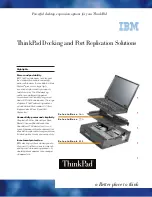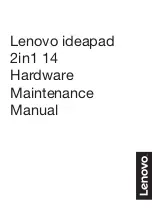
Product name: Lithium ion rechargeable battery cell
Reference number: SDS-IBT-00026
Establishment / Revision: Jan. 1, 2013
2/5
4. FIRST-AID MEASURES
Spilled internal cell materials
・
Inhalation:
Make the victim blow his/her nose, gargle. Seek medical attention if necessary.
・
Skin contact:
Remove contaminated clothes and shoes immediately. Wash extraneous matter or contact region with
soap and plenty of water immediately.
・
Eye contact:
Do not rub one’s eyes. Immediately flush eyes with water continuously for at least 15 minutes. Seek
medical attention immediately.
A battery cell and spilled internal cell materials
・
Ingestion:
Make the victim vomit. When it is impossible or the feeling is not well after vomiting, seek medical
attention.
5. FIRE-FIGHTING MEASURE
・
Suitable extinguishing media: Plenty of water, carbon dioxide gas, nitrogen gas, chemical powder fire
extinguishing medium and fire foam.
・
Specific hazards: Corrosive gas may be emitted during fire.
・
Specific methods of fire-fighting: When the battery burns with other combustibles simultaneously, take fire-
extinguishing method which correspond to the combustibles. Extinguish a fire from the windward as much
as possible.
・
Special protective equipment for firefighters:
Respiratory protection: Respiratory equipment of a gas cylinder style or protection-against-dust mask
Hand protection: Protective gloves
Eye protection: Goggle or protective glasses designed to protect against liquid splashes
Skin and body protection: Protective cloth
6. ACCIDENTAL RELEASE MEASURES
Spilled internal cell materials, such as electrolyte leaked from a battery cell, are carefully dealt with
according to the followings.
・
Precautions for human body:
Remove spilled materials with protective equipment (protective glasses and protective gloves). Do not
inhale the gas as much as possible. Moreover, avoid touching with as much as possible.
・
Environmental precautions: Do not throw out into the environment.
・
Method of cleaning up: The spilled solids are put into a container. The leaked place is wiped off with dry
cloth.
・
Prevention of secondary hazards: Avoid re-scattering. Do not bring the collected materials close to fire.
7. HANDLING AND STORAGE
・
Handling suggestions
・
Do not connect the positive terminal to the negative terminal with electrical wire or chain.
・
Avoid polarity reverse connection when installing the battery to an instrument.
・
Do not wet the battery with water, seawater, drink or acid; or expose to strong oxidizer.
・
Do not damage or remove the external tube.
・
Keep the battery away from heat and fire.
・
Do not disassemble or reconstruct the battery; or solder the battery directly.
・
Do not give a mechanical shock or deform.
・
Do not use unauthorized charger or other charging method. Terminate charging when the charging
process doesn’t end within specified time.
・
Storage
・
Do not store the battery with metalware, water, seawater, strong acid or strong oxidizer.
・
Make the charge amount 30~50% then store at room temperature or less (temperature= -20~35 degree
C) in a dry (humidity: 45~85%) place. Avoid direct sunlight, high temperature, and high humidity.
・
Use insulative and adequately strong packaging material to prevent short circuit between positive and
negative terminal when the packaging breaks during normal handling. Do not use conductive or easy to
break packaging material.























